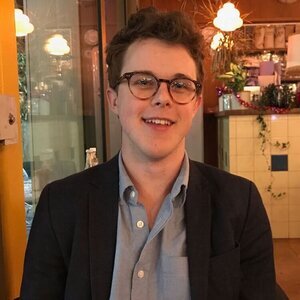Classics Model Personal Statement
This is the model personal statement of a successful Oxbridge Classics applicant.
The study of our classical heritage was for centuries the basis of Western education. Classics is a broad-based and varied discipline, the key to understanding the foundations of our civilization. I have always loved exploring the humanities but have never had the opportunity to study Classics at school; I wish to truly engage with the civilizations that have made us who we are.
Studying German has helped me understand linguistic complexities, which in turn made me curious to learn Latin, the root of many languages. I took the JACT Beginners’ Course this summer where I achieved 59/60 in a mock GCSE paper. More importantly, the intensive schedule with its focus on grammar was very stimulating. Among the varied lectures on offer was one on Aquae Sulis (Bath). I learned that curse tablets were found there, with inscriptions in Latin as well as other languages. This shows the multi-cultural nature of Roman Britain, as does the dedication of the temple there to both Minerva, a Roman goddess, and Sulis, the genius loci. I intend to research the Roman presence in Germania – and to take the Advanced Latin Course next summer.
Whilst on holiday in Vienna I visited the remarkable Kunsthistorisches Museum. I was able to use my German to read the displays about the Greeks and Romans. Narratives of Greek myths were beautifully depicted on vases. I then moved on to an exhibit about Roman Emperors which reminded me of how the Romans absorbed Greek culture and were inspired by its political system.
In A Very Short Introduction to Classics, I learned about the classical revival in the nineteenth century. I found a direct link to my current English studies – we are discussing Romantic poets - and I can see clearly how they valued Antiquity. Keats’ Ode on a Grecian Urn, a famous example of ekphrasis, is a meditation on how the classical world can be ‘a friend to man’. Keats never visited Greece, but his detailed description of the ‘Silvan historian’ shows how his imagination was captured by it. The Victorian artist Alma-Tadema was similarly inspired, as I discovered at the 2017 Leighton House exhibition, At Home in Antiquity. A visit to Pompeii inspired many of his paintings which depict ordinary people in idealised classical settings. I have seen another link between art and history in my research for an Extended Project on Islamic Art. This art emerged from Byzantine tradition so was influenced by Late Antiquity.
My introduction to ancient philosophy came from a seminar on Aristotle’s Politics, which was part of a Young Scholars Day organised by the Temenos Academy. His ideal community was an inter-connected whole, in which there were different relationships. This encouraged me to attend a Plato Study Day. Both philosophers believed that music directly affects the soul. In Greek plays, the Chorus comprises ordinary citizens, and music is embodied by the community. For a total of seven rewarding years, I was a violist in the National Children’s Orchestra followed by the National Youth String Orchestra. Being a classical musician and a chamber choir member has meant that music offers another dimension to my studies (for which I am indebted to the Ancient Greeks!)
As a member of the wider community, I always try to reach out to others. As well as being a German and History subject coach, I have been a regular altar-server in my local church for the past ten years. I gained a TEFL qualification at school and am working towards my Gold Duke of Edinburgh Award.
My interest in the world around me has drawn me to Classics. I believe that it will give me a firm grounding in an interdisciplinary education second to none. I will aspire both to make a positive contribution and to display my love of learning at university and beyond.






